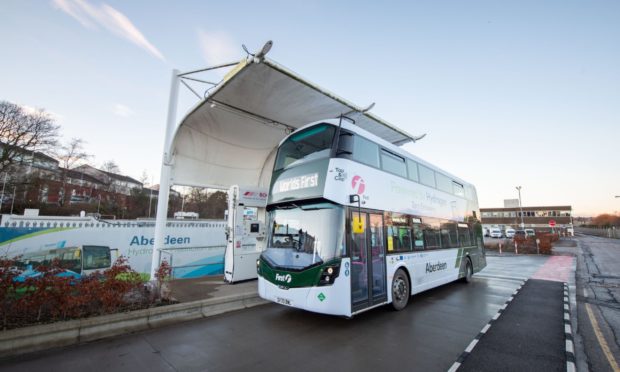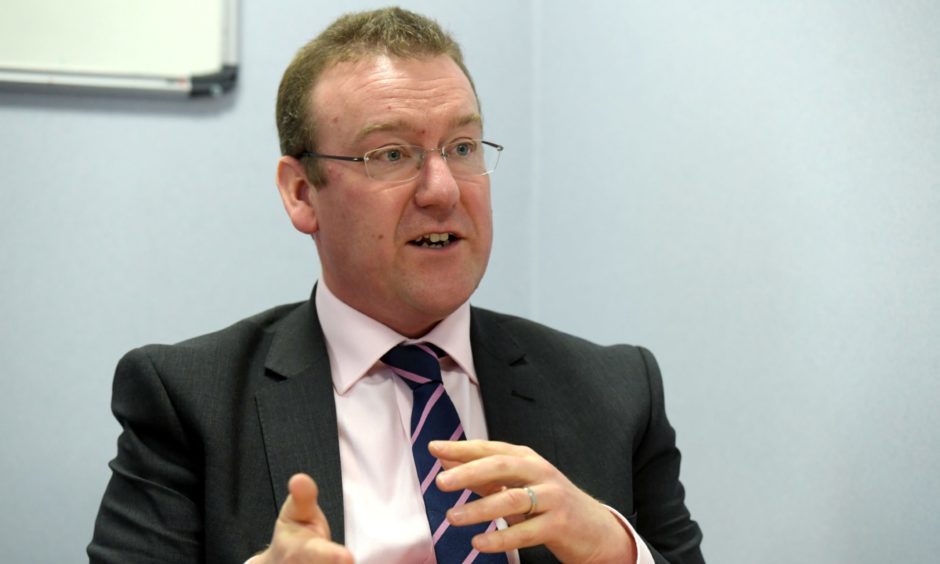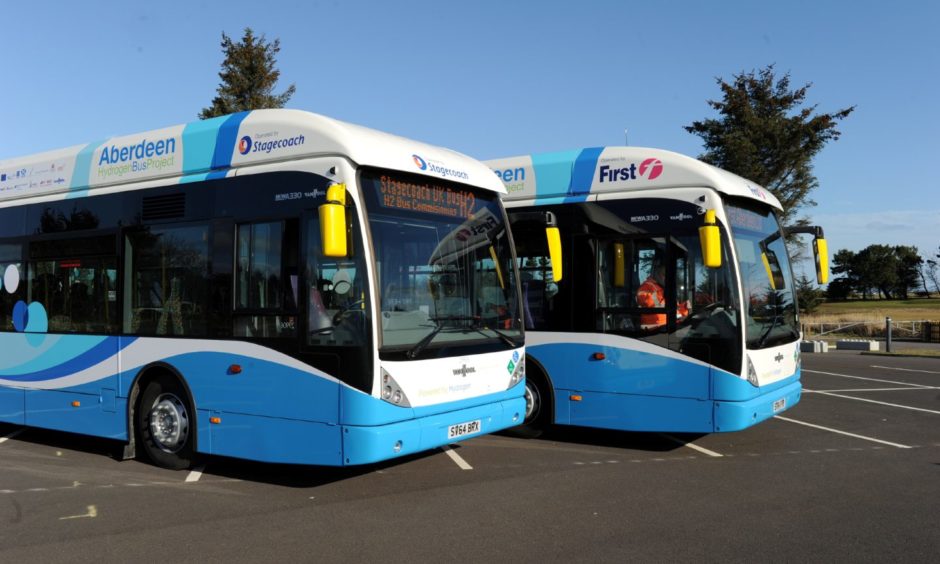Public transport chiefs say they are unconvinced about the benefits of hydrogen buses despite a multi-million-pound fleet being launched in Aberdeen.
It’s hoped the green vehicles, worth £500,000 apiece, will help to reduce emissions and make the city a cleaner and healthier place to live, and may even help pave the way for new industry.
But while First Bus managing director Andrew Jarvis is excited they have taken to the road, he added that their predecessors were often in need of repair.
He said four hydrogen buses run by First in 2015 as part of the £20 million Aberdeen Hydrogen Bus Project were “rarely all in service at any one time”.
Last week, First Bus launched the world’s-first fleet of hydrogen-fuelled double deckers in the Granite City, with 15 vehicles costing £8.3m in council-secured grants from the EU and Scottish Government ready to welcome passengers.
That huge sum did not include the retraining of staff or the infrastructure that required to be installed at First’s King Street depot.
Aberdeen’s vehicles, to run on the number 19 route from Culter to Tillydrone, were the first off the Wrightbus production line in Ballymena, Northern Ireland.
And Mr Jarvis said it was important the Northern Irish firm proved more capable of supporting the cutting edge technology than previous supplier, Van Hool.
They must be on the road
Mr Jarvis told The P&J: “Previously we had four hydrogen vehicles – and they weren’t the most reliable.
“It was rare for us to get all four into service at any one time over that entire project, which was very early in the life of hydrogen buses and from a non-UK supplier.
“We have to win some hearts and minds – externally and internally.
“We have moved 10% of our Aberdeen fleet to hydrogen-fuel so they have to be reliable.
“It’s no good having fancy-looking buses spending all the time in the garage.
“When we have so many of them they have to be out on the road serving the public.”
It is understood Aberdeen City Council has already placed an order for another 10 of the buses, securing a further £4.5 million in grants to cover the cost.
But Mr Jarvis said First Bus need to be convinced by their new machines that times have changed before committing to taking them on.
“That’s only prudent,” he said.
“The 15 buses are a big part of our Aberdeen fleet and the cost of some of this technology is very, very high compared with bus fares.
“You need a lot of them to pay off a half-million-pound bus.”
New fleet should prove worth
Taking 10 minutes to charge, the new double deckers have a range of about 200 miles, meaning they should run morning, noon and night on the number 19 route – whereas the latest electric models would run out of juice.
Aberdeen’s involvement in the EU bus scheme is part of council efforts to make hydrogen power more competitively priced and more widely adopted, as Town House bosses view the green energy source as one of the city’s next big industries.
Already, the new 2020 double deckers cost half what was paid for their single-floor predecessors.
It is hoped a planned hydrogen plant would make use of the abundant offshore wind to produce hydrogen to be exported elsewhere, fuel the city’s bus fleet and possibly heat homes.
Hopes for hydrogen future
Councillors will be updated on initial talks with would-be operators for the hydrogen hub this week.
Co-leader Douglas Lumsden said: “We have been quite serious about our net zero vision and one of the key things is a hydrogen production hub.
“Hopefully in the future we can produce hydrogen that can be exported or used for other things like buses, on the railways and for HGVs.
“We want to be right at the centre of it.”


